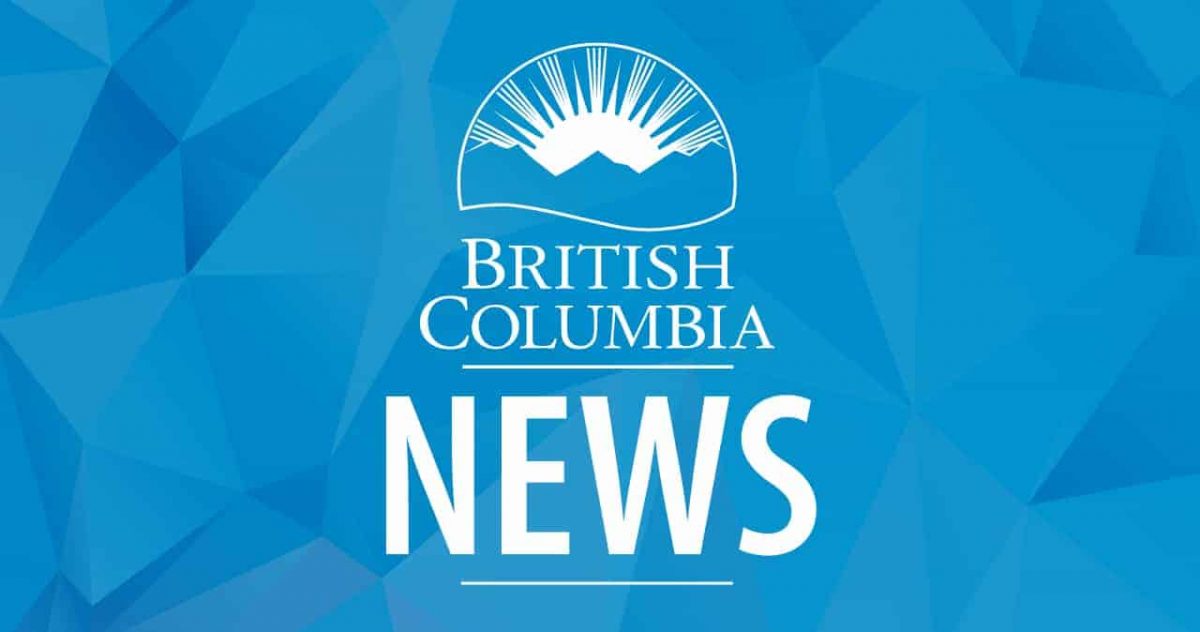
B.C. farmers get help building more resilient, sustainable practices
Farmers and ranchers are receiving additional assistance to prepare for, adapt to and lessen the impacts of climate change so they can better protect their farms and livestock and continue growing food for people in B.C.
“From flooding to wildfires and drought, our farmers and ranchers are facing the impacts of climate change head on,” said Lawrence MacAulay, federal Minister of Agriculture and Agri-Food. “That’s why it’s vitally important we continue to support the sector, and through programs like the Regional Extension Program, we’re making sure producers can protect their operations from these events and keep feeding their communities.”
The Regional Extension Program is supporting 16 regional projects through a second round of funding with $1.5 million from the governments of Canada and B.C. Farmers can improve things such as soil health, water supply and management, greenhouse gas emissions and the impact from drought and wildfire. The regional projects will take place in communities throughout the province in the coming year.
“B.C. farmers and ranchers are experiencing first-hand the impacts of climate change, and the challenges it poses to their livelihoods, personal welfare and the well-being of their animals,” said Pam Alexis, B.C. Minister of Agriculture and Food. “We’re already seeing the results of this program helping people in our communities prepare for and adapt to extreme weather events, which is helping strengthen food security for people in B.C.”
Several projects from the first round of funding focused on helping regions prepare for and adapt to drought. One project focused on providing drought workshops for farmers with livestock in regions most adversely affected by drought, so farmers are now better prepared to implement new strategies and best management practices that will help them adapt to climate change.
Another project focusing on drought preparation was launched in the Koksilah River watershed on Vancouver Island. Funding was used to support producers with an irrigation-scheduling project to help them be better prepared for drought conditions.
Farmers and ranchers throughout B.C. were also able to attend field days and workshops for water management and training so they can be better prepared for prolonged dry periods.
Program funding is from the Province’s CleanBC initiative and the Sustainable Canadian Agricultural Partnership (Sustainable CAP). Sustainable CAP is a five-year (2023-28), $3.5-billion investment by federal, provincial and territorial governments to strengthen competitiveness, innovation, and resiliency of Canada’s agriculture, agrifood and agri‐based products sector. This includes $1 billion in federal programs and activities and a $2.5-billion commitment that is cost-shared 60% federally and 40%, provincially and territorially, for programs designed and delivered by provinces and territories.
Quotes:
Andrea Gunner, Rosebank Farms, Decoding Drought workshop participant –
“The workshop provided valuable information and shared helpful resources to get real-time stream and groundwater monitoring data. By attending the session, it has reinforced our desire for proactive resiliency planning and firmed our resolve to expand our existing water storage and catchment system.”
David Tattam, contractor, Koksilah River project –
“Having been through a complete shutdown of irrigation on my own farm in the summer of 2019, I knew this project would be helpful to farmers on Vancouver Island. The benefits of having a plan in place to extend the irrigation season with scheduling provided the farmers with an opportunity to concentrate their irrigation efforts on the fields/crops that would benefit the most from the limited water resource.”
Jill Landreville, Floresta Orchard, Agriculture Water Management workshop participant –
“The sessions provided a great introduction to some of the resources and tools available to help manage water more efficiently on farms. The Agriculture Water Management workshop gave a thorough overview of how to improve irrigation management with the use of soil moisture monitoring devices, weather stations and online irrigation scheduling calculators. These tools will help us feel more confident this coming growing season that we are watering our crops appropriately without wasting excess water.”
Quick Facts:
- The Regional Extension Program is supporting activities such as data sharing, on-farm demonstrations, workshops and webinars that highlight best practices and the latest research and technologies to support sustainable agriculture.
- The first round of funding supported 16 regional projects.
Learn More:
To see the full list of the Regional Extension Program 2024-25 funding recipients and projects, visit:
https://news.gov.bc.ca/files/Backgrounder_2024-25REP_FundingRecipientsSept2024.pdf
Regional Extension Program news release and 2023-24 projects:
https://news.gov.bc.ca/29613
2023-24 Regional Extension mid-year report:
https://www2.gov.bc.ca/assets/gov/farming-natural-resources-and-industry/agriculture-and-seafood/programs/infographics/regional_extension_infographic.pdf
Regional Extension Program What We Heard Report:
https://www2.gov.bc.ca/assets/gov/farming-natural-resources-and-industry/agriculture-and-seafood/programs/regional-extension/af_what_we_heard_engagement_on_environment_and_climate_priorities_aug_2024.pdf
Regional Extension Program:
https://www2.gov.bc.ca/gov/content/industry/agriculture-seafood/programs/regional-extension-program
Sustainable Canadian Agriculture Partnership Program:
https://agriculture.canada.ca/en/department/initiatives/sustainable-canadian-agricultural-partnership
